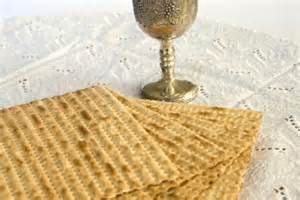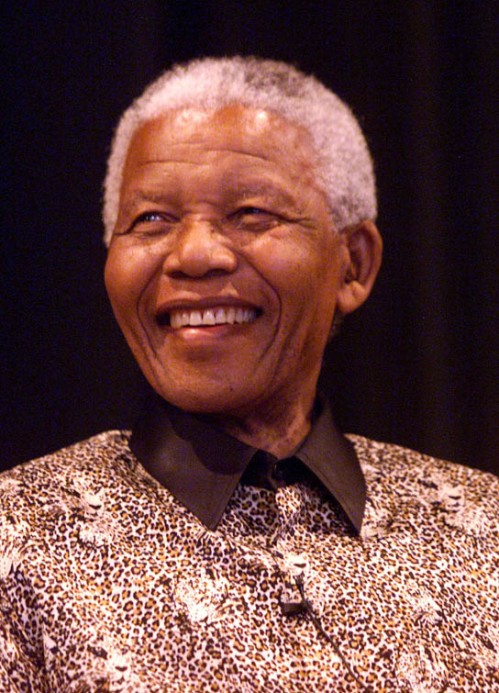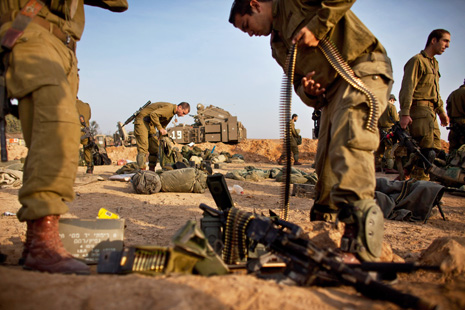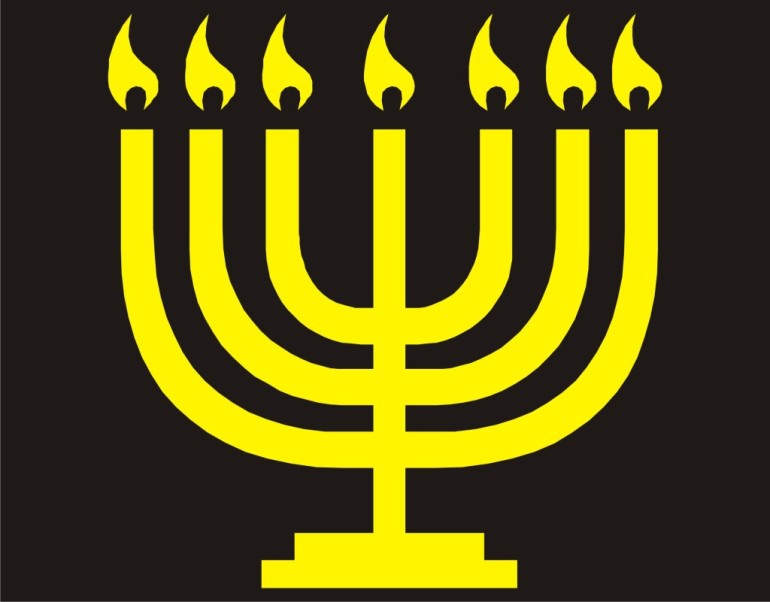Ever heard a discourse on Palestine/Israel that asks for a “balanced approach” by taking “the other side” into account as the situation between Israel and Palestine is “very complex”?
Such a viewpoint is usually expressed in terms of “truth”, “peace” and “reconciliation”. All of this sounds very reasonable, doesn’t it?
On the surface yes, and for many years, these arguments convinced me too. But that was before I knew that the Palestinians have only 22% left of the land allotted to them by the United Nations in 1948, and before realising that endless talks about complexities without practical peace initiatives create the space for a continued land grab by Israel.

Not all Jews agree on the same “facts” or on what “peace” and “truth” entail, for example:
- On the one hand there is Zionism – a fundamentalist position of Judaism that advances exclusion and separatism. Many Christians endorse this paradigm in the debate on Israel-Palestine and hence feel that Israel is so special that it may ignore international laws and rulings by bodies such as the International Court of Justice and the United Nations. They talk “peace”, “truth”, “facts” and “balance” and say all of the land that used to be a British Protectorate in 1948 (called Palestine) rightly belongs to Israel.
- On the other hand there are Jews who do not approve of Israel’s oppression of the Palestinians and the associated illegal occupation and of their land. They use verified facts from declared sources to remind us of the death and displacement of millions of Palestinians as part of Israel’s institutionalised, systemic oppression, and that the oppression and the land confiscation continue to this day.

 1948: Fleeing Palestine during the Nakba (the Catastrophe)
1948: Fleeing Palestine during the Nakba (the Catastrophe)
Dr Paul Hendler, for example, has some strong views on the Palestinians’ struggle to humanize themselves…

My name is Paul Hendler and I live in Stellenbosch. I am a Jewish South African who is against the demonization of the Palestinians by mainstream Zionism and for a rational discussion about the facts that characterize the history of the Palestinian people’s struggle for freedom and national self-determination.
It was on this basis that I responded to a letter by Jennifer Harris (Cape Times 4 January) who purported that the facts showed that the Jewish Zionists were the conciliators and the Palestinians the savages against whom the Jews were left with no option but to fight (against their will or preferred option).
I am familiar with this view: I grew up with it in our community in Paarl and was to some extent imbued with it while participating in the Zionist (Habonim) youth movement during the 1960s. But even then something wrankled and didn’t ring true about this narrative and I embarked on a search for the true circumstances of the 1948 flight of these people into a semi-permanent refugee status ever since, reading both Zionist literature and literature critical of and in opposition to Zionism. My journey has uncovered more and more questions about the veracity of the Zionist myth – the purpose of this blog piece is to demonstrate why I say this.
I hold the view that there is a truth independent of Zionists or Palestinian views and that reasonable people (on both sides) should be able to debate the facts to start defining this truth. (I also argue that this is a precondition for a serious non-violent strategy to resist Zionist oppression and domination of Palestinians).
My experience, however, has been that mainstream Zionists get intensely defensive whenever deeper questions are raised and attempt to shut up the questioner by vilifying his/her character; it’s as if they have to stop the investigation into the roots of the flight of the majority of the Palestinian people into refugee status. My investigations indicate that the rigorous historical research and analyses has tended to be conducted by Palestinian scholars and anti-Zionists (or critically Zionist) Israeli Jews.
Here is Jennifer Harris’ letter to the Cape Times:
J Harris letter to Cape Times
…to which Paul replied as follows:
07 January 2013
Jennifer Harris (letters, 04 January 2013), a mediation specialist, needs to do a lot more homework on the facts surrounding the 1948 Naqba. She claims that Israel was established where 8,6% of land was Jewish-owned, 3,3% Israeli Arab-owned, 16,9 absentee Arab owners (who got out of the way while invading Arab armies intended to destroy Israel) and 71,2 per cent by the mandatory power, which was allocated to Israel as legal heir. She concludes “the contention that the bulk of the land had belonged to Arabs has no foundation in reality”.
The magisterial work, “All that Remains – the Palestinian Villages Occupied and Depopulated by Israel in 1948”, edited by Walid Khalidi, (1992) (the Institute for Palestine Studies, the Galilee Centre for Social Research and Birzeit University) referred to the Palestine Index Gazetteer and Village Statistics 1945: a Classification of Land and Area Ownership in Palestine (Palestine Government) to demonstrate that Palestinians owned between 42 and 98 per cent of land – in nine of 16 districts this was more than 75 per cent, in six between 42 and 75 per cent and in one (Beersheba) 15 per cent. Zionists owned between three and thirty-nine per cent – in eight districts between less than one per cent and five per cent, and between 14 per cent and thirty-nine per cent in the remainder. The mandatory government ownership varied between one and 23 per cent in 15 districts – in Beersheba it owned 85 per cent of the land.
Ms. Harris is perpetuating a Zionist myth that the “people without a land returned to the land without a people”, and parading this as Truth.
“All that Remains” chronicles the occupation and depopulation by Palmach (later IDF) brigades of 418 Palestinian villages located within the pre-1967 borders of Israel, based partly on IDF archival sources, partly on eye witness accounts, whereby coordinated moves by the brigades through a swathe of villages per region, resulted in attacks on villages (which were often resisted), the expulsion of most of the inhabitants and the dynamiting of their homes shortly thereafter. IDF documents describe these operations in the north (near Galilee) as “cleansing” of the countryside – presumably to Judaise these areas.
There are also narratives of those who fled before this lot could befall them, but besides Husseini’s pro-Nazi and anti-semitic calls there is no evidence of widespread calls from neighbouring Arab states for the people to flee – if anything, there were calls to stay and although Arab Liberation Army irregulars (largely volunteers) entered Palestine to defend the villages they were no match for the Zionist forces. As Israeli historian Illan Pappe (“The Ethnic Cleansing of Palestine”), David Gilmour (“Dispossessed”) and Benny Morris (“1948”) have demonstrated there had already been 250 000 to 300 000 expelled in early 1948 prior to the declaration of the State (May). Morris, himself a Zionist, in a frank interview with Haaretz (2004), confirmed the violence inherent in the expulsion of the refugees and justified this as historically necessary in the conflict between civilized Israelis and ‘barbarous’ Palestinians. Pappe has referred to detailed evidence in Ben Gurion’s diaries (in Hebrew) which show him regarding the Palestinian peasants, small farmers and villagers as the real enemy of the Zionist project. Churchill famously said: “the truth is incontrovertible; malice may malign it, ignorance undermine it, but in the end there it is.”
In the end, 750 000 Palestinians lost their homes, their livelihoods, and largely their identities, although they forged a new identity through their national liberation struggle against Zionist colonization. Finding a just peace between Palestinians and Israelis, and one which can be pursued through non-violent means, will perforce require negotiation and possibly mediation – if Ms. Harris would like to contribute to that process she would make a good start by getting her facts right.
Dr Paul Hendler
Stellenbosch.
A week later, the Israeli Ambassador to South Africa replied as follows in the public domain:
Cape Times Article by Israeli Ambassador
After this reply, Paul could not leave the matter there. Here is his response to SIX POINTS made by the Israeli Ambassador:
I would like to provoke debate in response to the ambassador of Israel’s article (Cape Times, 14 January), which responded to my letter (Cape Times, 9 January). The Israeli ambassador makes six points, all of which can be disputed in good faith by reference to at least some of the crucial “facts”.
When there is a dispute about the facts it is useful to delve behind the data to examine how it has been constructed in order to assess its credibility.
Point One – “The oft-quoted 750 000 refugees is a grossly exaggerated figure for propaganda purposes”:
Walid Khalidi’s “All the Remains” (see my letter of 9 January) sets out in some detail a method for calculating the number of Palestinians depopulated from some urban centres in nine districts (which constituted the area that became the State of Israel), parts of Jerusalem 418 rural villages, and also the number of Bedouin that became refugees:
Figures Palestinian Refugees
It appears that the sources the Ambassador refers to might not have projected the population growth rates between 1944 and 1948 and not have included the Bedouin refugees in their count.
Point Two – “The Palestinians fled because they were exhorted to and then to return behind the expected victorious invading Arab state armies, and having driven the Jews into the sea to confiscate their possessions and land.”
There is a bona fide dispute about the calls to leave. Gilmour’s “Dispossessed” (1980) refers to Khalidi’s “From Haven to Conquest: Readings in Zionism and the Palestine Problem until 1948” which refers to Dr Erskine Childers’ (son of Ireland’s fourth president, BBC correspondent and UN civil servant) examination of British and American monitoring of Middle East broadcasts throughout 1948 (available in British Museum), which could not find a single order or appeal to evacuate Palestine from any Arab radio inside or outside Palestine, but that there were appeals for civilians to stay put. (http://zionism-israel.com/his/Palestine_Nakba.htm questions whether it was technically possible to research the content of all broadcasts, which is an interesting question and which could be addressed). Gilmour points to a March 1948 Arab Higher Committee letter to the Egyptian and other Arab governments resolving that it was not in the interests of Palestinians to leave the country. Gilmour also refers to Geofrey Furlonge’s “Palestine is my country” (1969) that Jerusalem leaders Hilmi and Khalidi forbade people to leave the city without a permit.
Even if there were widespread calls by leaders for the population to leave, this does not necessarily constitute the reason why they left: it is reasonable to ask why a settled rural population would suddenly uproot itself in response to calls from foreign urban political elites hundreds (if not thousands) of kilometers away, with whom few of them were acquainted.
Point Three – “The Palestinians title to these lands is questionable and in any event they were migrants first and foremost in search of better opportunities rather than communities with deep roots in the land of Palestine.”
The ambassador presents the refugees as highly mobile illegal immigrants following prosperity. Ms. Harris says that they owned only a fraction of the land, most of which was held by the Mandate authority. Based on meticulous research – including field research – which identified each of the depopulated villages and its history, “All that remains” provides a different picture of a settled population of peasant farmers and small town/village artisans with a historical presence in the area.
We need to investigate the existing land tenure arrangements in pre 1948 Palestine and also keep in mind that prior to the rise of industrial capitalism in the Middle East people occupied their land on a de facto basis as direct producers in agrarian economies and that this de facto occupation conferred both rights and obligations.
“All that remains”, drawing extensively on IDF archives as well as eyewitness accounts, details an extensive military campaign to occupy or take these villages, which is the alternative narrative to the Zionist account, confirmed by eye witness accounts. Mainstream Zionist historians – including Bennie Morris, who has admitted and justified the violent dispossession of Palestinian land – are conspicuous by the absence of any oral history and eye-witness accounts by the refugees and/or their descendants, regarding the events of 1948.
Point Four – “More Jews (850 000) were expelled from Arab countries, also losing their properties in the process, but they at least were taken in by their Zionist Jewish brethren whereas the Palestinians were abandoned by those who should have shouldered responsibility for them, namely the surrounding Arab states.”
Terry-Crawford-Browne (next to my letter of January 9) refers to Zionist-security services complicity in the acts of anti-semitism carried out in the Arab countries and which preceded the relocation of the Jews of colour (the MIzrahim) to Israel. I remember reading this viewpoint by David Hirst (“The Gun and the Olive Branch”) (2003) and I have recently purchased the book (updated) and intend to explore this further. The so-called responsibility of the Arab states for the Palestinian refugees has to be looked at in the light of the questionable assumption that they were instrumental in getting the Palestinians to pack their bags in the first place. There needs to be a lot more looking into this and precisely who said what and when. The sources of such information need to be scrutinized to determine their veracity (e.g. independent or embedded journalists?)
Point Five – “What happened to the Palestinians is simply a part of history, and has happened on a larger scale to other peoples in time of war: for example, the Germans fleeing from the advancing Red Army at the end of World War 2 and the refugees who were displaced during the breakaway of Pakistan from India.”
The Ambassador demonstrates a cavalier attitude to (what he regards as the unintended) “collateral” damage of war and trivializes the suffering not only of the Palestinian refugees and people but also the Indian/Pakistani refugees and fluechtlinge from the Soviet forces at the end of the Second World War. His logic is chillingly close to that of David Irvine, a notorious denier of the Nazi genocide of the Jews – Irvine saw the Jewish deaths (a relatively small part of the total civilian deaths in this war) as unplanned and an outcome of the chaos of the war. Applying this logic to the genocide would reduce this catastrophe for the Jewish people (and also for a similarly large population of Gentiles who were exterminated) to a banal event.
Point Six – “Israel is the only democracy in the Middle East and its Gentile citizens (largely Palestinians) enjoy equal rights and opportunities with its Jewish citizens.”
Hernando de Soto (UN Commissioner) and Francis Cherval (“Realizing Property Rights”, 2006) identify mechanisms that not only limit the extent of private land ownership in Israel but also ensure that de facto control of decision-making with regard to land is vested in Jewish bodies like the JNF. They conclude that “the Israeli land regime can be said to have produced long-term disparities between the ‘founding’ Ashkenazi group (i.e. Caucasian European settlers), the ‘immigrant’ Mizrahim and the ‘indigenous’ Palestinian-Arab group”. Israel’s Palestinian citizens are also excluded from social service benefits accruing to people who have served in the IDF because they are excluded from going to the army.
Joeseph Massad (Columbia University) (http://english.aljazeera.net/indepth/opinion/2011/05/20115684218533873.html) lists the following laws that discriminate in favour of Jewish Israeli citizens against Palestinian Israeli citizens: including the Law of Return (1950), the Law of Absentee Property (1950), the Law of the State’s Property (1951), the Law of Citizenship (1952), the Status Law (1952), the Israel Lands Administration Law (1960), the Construction and Building Law (1965), and the 2002 temporary law banning marriage between Israelis and Palestinians of the Occupied Territories. He makes the further point that it is the very presence of Arabs in the Jewish State that propels the Jewish State to enshrine its racism in all these laws. There is an inherent contradiction in the notion that Israel is both a democratic and a Jewish state.
Having read the above discussion, I want to ask: Should only Palestinians be freed? Didn’t someone say that the truth sets one free?
I would dearly like to see free Palestinians and free Israelis living in harmony and in alignment with international law.













































 Rev Moss Nthla, Secretary General of The Evangelical Alliance of South Africa and Chairperson of Kairos Southern Africa and Dr Braam Hanekom, Vice Moderator of the Dutch Reformed Church, addressing an audience of Palestinian Christians in Bethlehem
Rev Moss Nthla, Secretary General of The Evangelical Alliance of South Africa and Chairperson of Kairos Southern Africa and Dr Braam Hanekom, Vice Moderator of the Dutch Reformed Church, addressing an audience of Palestinian Christians in Bethlehem



